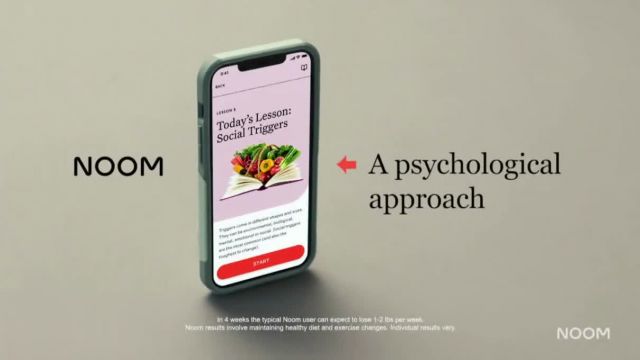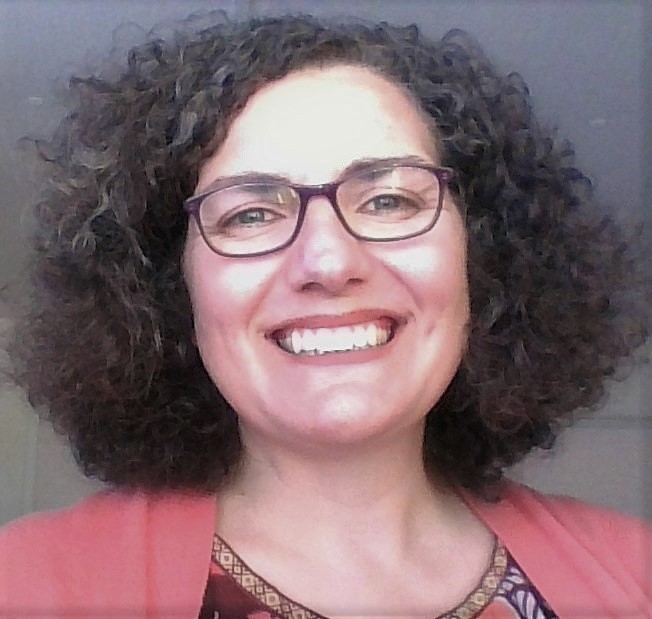The dangers of weight loss companies adopting eating disorder recovery language
After decades of yo-yo dieting at the hands of weight loss clubs, fitness apps, miracle-cure revealing books, celebrity-endorsed plans, and all manner of “have the body you’ve always wanted” marketing, what a relief it is to hear the language of whole-person wellness.
And yet what a surprise it is to hear it being messaged to the masses by way of mainstream weight loss companies.
A Noom weight loss app ad aims to empower with “It’s not a diet. It’s a choice.”

The language of whole-person wellness is increasingly being used by weight loss companies such as Noom.
Competing forces of value and perfection for our bodies
Research shows that the constant struggle between valuing oneself and the pressure for conforming to societal cues of perfection can lead to distorted body image and disordered eating patterns.
Could a shifting focus to wellness be signaling a cultural change that could help mitigate the development of new eating disorder cases?
Is diet culture making room for us to be ourselves and appreciate our bodies in peace?
The latest trends mean we’re often hearing as much about feeling good as we are about looking good. We’re being urged to explore what nourishes us, beyond the quantity of food on our plates. And sometimes, we’re even encouraged to love ourselves, no matter what size we are.
And yet we’re still being urged to continue to strive to be the best version of ourselves using their-new-and-improved-designed-to-help-you-change-your-body product.
At the end of the day, it is still all about weight loss; it’s just now being cloaked in the language of recovery.
Dangers lurking in weight loss’ new approach
It seems to be we have a wolf in sheep’s gym clothes – a false positive.
We are sold the idea that healthy recovery from our out-of-control behavior with food will yield us the body we’ve always wanted. Weight loss will be proof of our wellness.
Let’s be clear: this is another promise of a diet culture, not of recovery.
Eating disorders are mental illnesses with significant, lasting, and sometimes fatal physical side effects. Recovery doesn’t prioritize your outsides.
Recovery is about your insides.
Recovery is not linear. Recovery doesn’t fit within a prescribed time frame of the latest app’s user journey.

Noom weight loss app is just one of many companies using eating disorder treatment messaging as a potentially dangerous tactic to gain users.
Recovery cannot be found in a weight loss app
Recovering from an eating disorder is a daily walk. Its gift is relief from the obsession with weight and shape and a release from stuffing or starving our bodies.
It is learning new skills to help us better cope with future challenges and the belief in our ability to do so alongside a community of support. Recovery is this and so much more, but it is never a vow to help you reach society’s current “body ideal”.
If your behavior with food concerns you, seeking support may be what your body and mind need.
Take care to not let the language of recovery lead you down a path to a product or service whose primary goal is to generate income for the shareholders. Whatever the cost, it’s too high.
Seek the support of a qualified professional who will prioritize your wellness over weight loss and help you learn the skills of recovery.
At Walden, we know finding care can be tough. That’s why we are here for you. If you are concerned that you, or a loved one, may have an eating disorder, please reach out by completing the form on this page or email us at intake_coordinators@waldenbehavioralcare.com.

Stephanie Haines, M.Ed., CHES (she/her/hers) has been providing school communities with specialized addiction prevention education since 1999 and has taught students of all ages in most U.S. states and more than 25 countries across five continents. After completing her graduate work at Plymouth State University’s Eating Disorders Institute in 2013, Stephanie joined Walden Behavioral Care as their Prevention Education Specialist, creating an eating disorders prevention curriculum designed for use in school communities. Stephanie takes great joy in raising awareness about the prevention and treatment of eating disorders and substance use disorders as a private consultant, and helping families get the care and support they need and deserve as a member of the Walden team.
*This blog post does not necessarily represent the views of Walden Behavioral Care and its management. The Walden Blog is meant to represent a broad variety of opinions relating to eating disorders and their treatment.







